The authors reclaiming the forgotten voices of ancient women
- Published
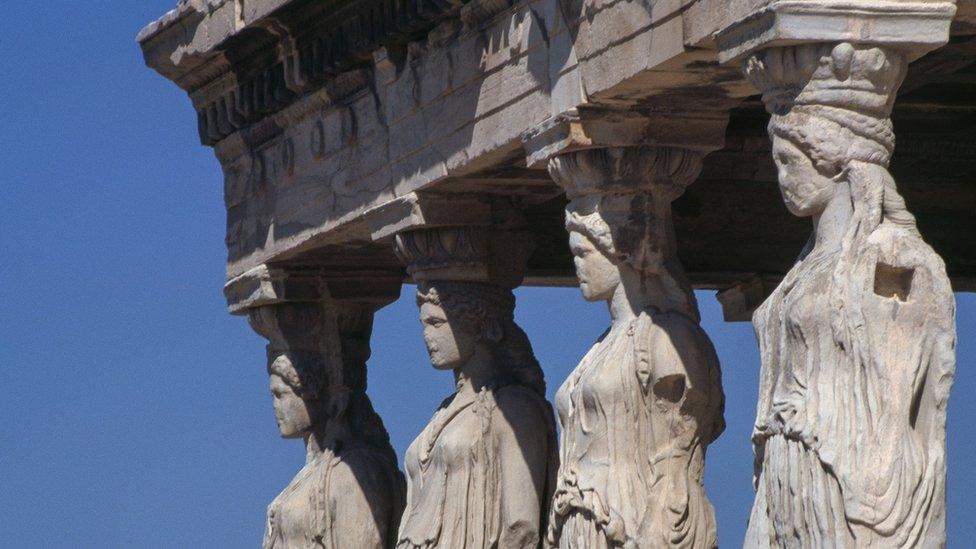
Natalie Haynes is one of a new group of writers reclaiming women's voices from ancient literature.
Along with authors such as Pat Barker and Madeline Miller, she's telling new versions of the Classics, veering away from epic fights and macho heroes.
Instead, they're finding compelling and timely voices: refugees fleeing war-zones, women being treated as commodities and people trying to survive an epidemic.
"When you re-tell a myth, you make it new," says Haynes.
In her book, A Thousand Ships, she foregrounds "the female characters which had been deliberately erased or overlooked".
Given we live in a world with environmental disasters, disease, sexual violence and war, Haynes says these tales are as pertinent now as they were 3,000 years ago.
Why look back?
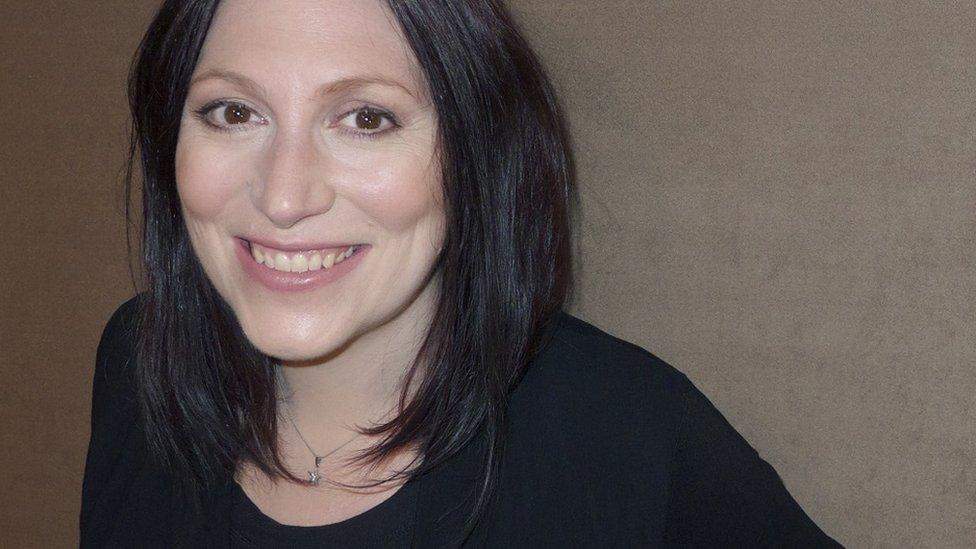
Haynes has given a voice to female characters previously shrouded in obscurity
"There's nothing I'd like more than for trafficked women to not be relevant in the modern world, to not have to talk about rape and war crimes," says Haynes, "but we're not there yet."
In her book, female characters are fleshed out and become more than just props in an epic story.
The old stories endure because they have been retold many times, Haynes says.
"One of the things which has remained pretty persistent through millennia is the focus on men: male authors writing about male characters.
"But often there are fantastically complicated, interesting, female characters in the ancient myths who get simplified. After 2,000 years of Western Christianity, they eventually become quite dull or are turned into a monster [Scylla], a villain [Medusa] or a bad wife [Helen]."
Instead of gory details or brutalising the victims on the page, Haynes offers us a female point of view, so we can understand these women better.
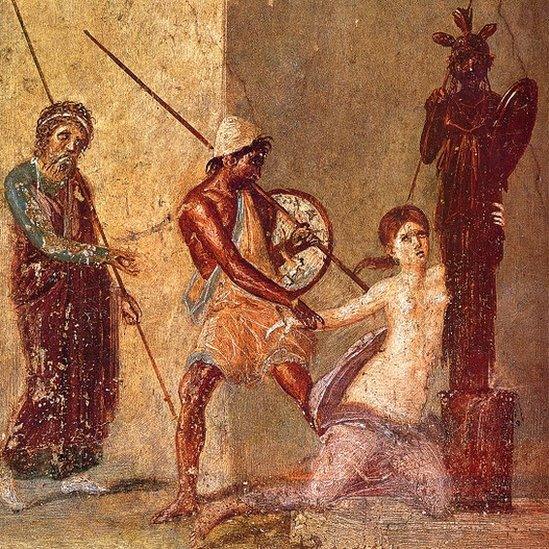
Cassandra warning their loved ones of the terrors to come, only to be old she was mad
Reading A Thousand Ships, you empathise with Hecuba, who goes from Trojan queen to Greek slave and witnesses the killing of most of her grown children one by one.
You feel Andromache's despair as she begs husband Hector to stay safe, so their city won't fall and put their family in mortal danger.
Perhaps the most heartbreaking story of them all is Cassandra's. She's not just a young woman condemned to utter prophecies which are never believed, but also an abused and lonely teenager, dealing with her trauma as best as she can while struggling with the stigma of mental health.
"These stories still matter today because human nature doesn't change much," says Haynes. "They can bring us a new understanding of what brutality and war does to people."
Finding diversity in the classical world
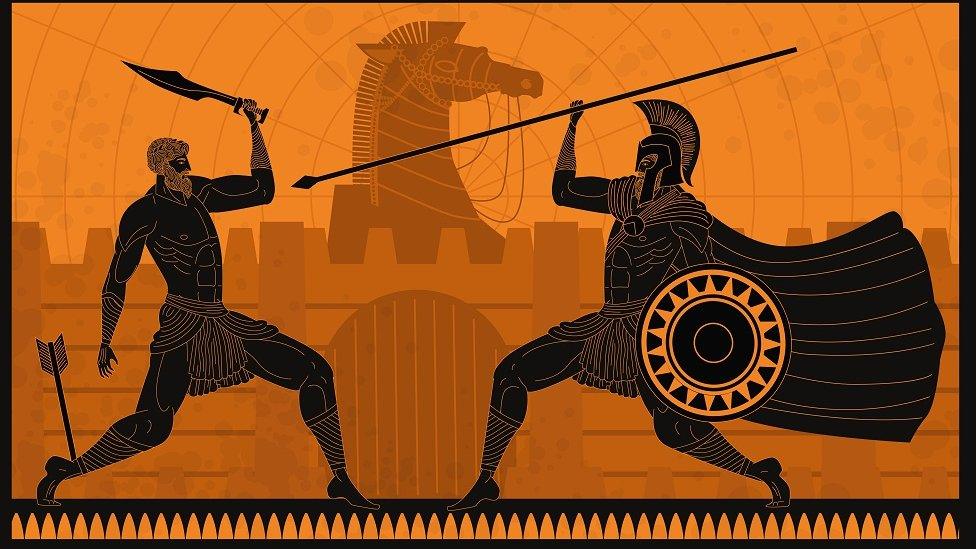
Some 'Greek' warriors came from Africa, the Middle East and central Asia
Having a diverse team of scientists re-examining old archaeological finds with new technology has helped show how poorly we understand the past sometimes.
Science "is opening our eyes to the fact that the ancient world didn't look the way we thought it did," says Haynes.
"Male archaeologists often assumed that if you found a skeleton with weaponry, it had to be a man, but new DNA testing has revealed that about one third of the warriors found in mass graves are in fact women."
Having more female scientists and academics encourages the study of women's history, says Haynes, and she thinks the same is true with race: "The more non-white scholars there are, the more other compositions of the ancient world are being considered."
Re-testing remains has busted the myth of a mostly white ancient Europe.
"In Roman Britain alone, up to a fifth of its inhabitants were long distance migrants - not from Europe, but from Africa and the Middle East," she says.
Knowing where to dig: the black hero of Troy and his friend the Amazon
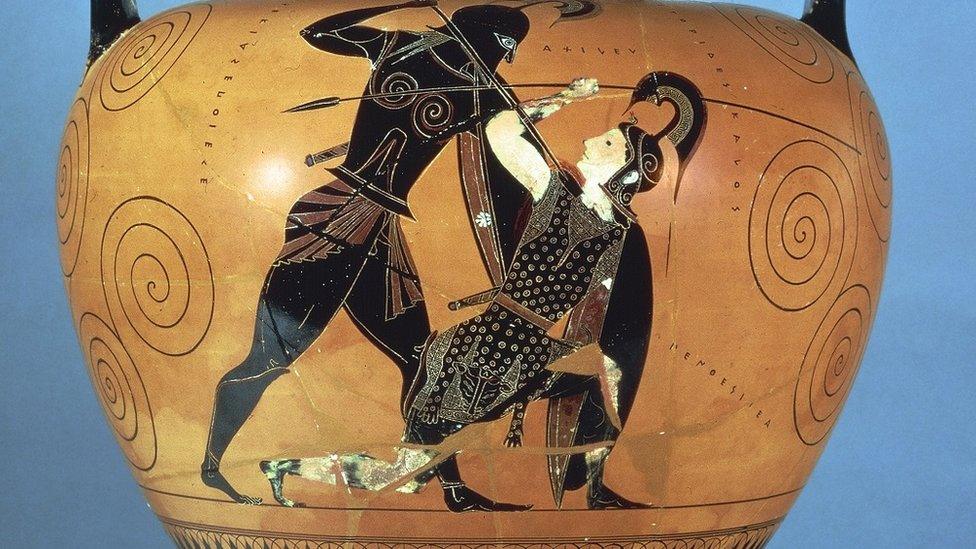
Achilles killed Penthesilea in combat, before realising she was a woman
When you think that over 90% of ancient literature has been lost forever, Haynes says she had to go beyond the obvious sources to research A Thousand Ships.
"You are forced to look differently at how we've recorded our past and what stories we've chosen to tell, you have to listen for the voices silenced by history and power," she says.
She trawled museums and theatres all over the world, from New Zealand to the US for "vase paintings, sculptures, frescoes... there are versions of Greek myths being put on stage in Japan," she says.
"These stories are so foundational, it seems to me awful to not have the chance to know them."
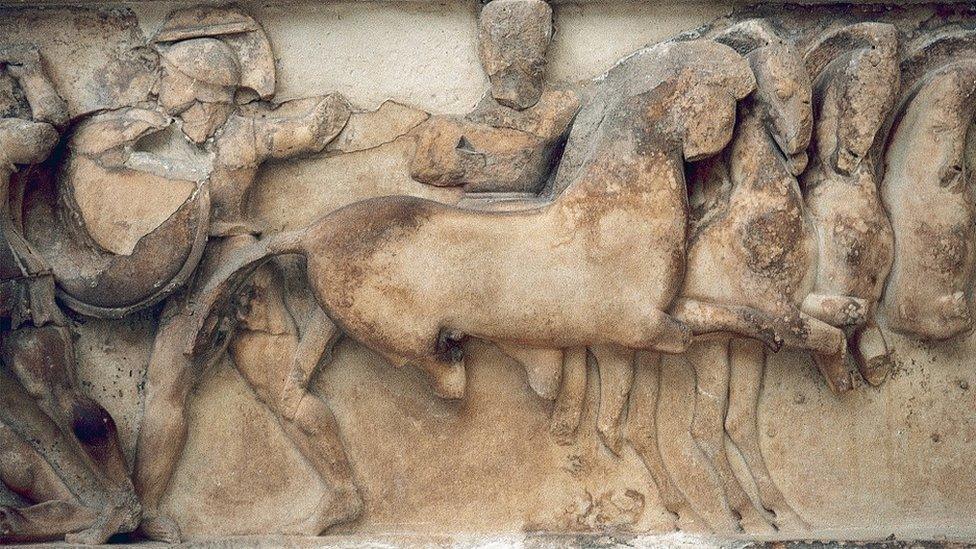
The epic poem of Memnon, an Ethiopian king who fought the Greeks has been mostly forgotten
One of the epic works we know of from fragments is the Aethiopis, "which tells us the tale of Penthesilea, the great Amazon warrior woman, and Memnon, the great Ethiopian hero."
But, Haynes asks, who has heard the tale of the great black hero who fought for Troy?
"And my god, of all the subjects which could do with some more representation, the classics really need these tales to survive."
New voices, old tales
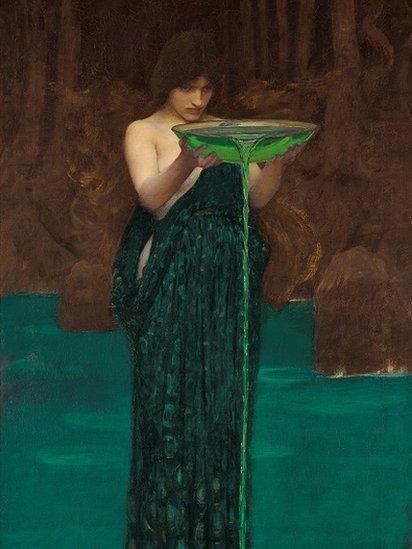
Mistress of revenge: Circe would turn rapists and thieves into swines
Most of the authors reading between the lines, picking out characters so thoroughly ignored, are women.
"Women have long been marginalised in the world of ancient texts, but female scholars and translators are finally having their say," says classicist Emily Wilson.
Her recent translation of Homer's Odyssey (she's now working on the Iliad) has been praised for its freshness, sparkling language and a level of humanity seldom associated with the work of classical scholars.
Madeline Miller has met remarkable critical and commercial success with Circe (which focuses on the eponymous Goddess-sorceress, previously a sidebar to Odysseus's adventures), and The Song of Achilles(which looks at the hero's love-affair with his life-long companion Patroclus).
The same can be said for award-winning Pat Barker and her The Silence of the Girls, often described as a "feminist Iliad".
Now there's Haynes's A Thousand Ships, a title that reference to Helen of Troy.
Helen's Greek husband was so affronted after she fled to Troy with Paris, he "launched a thousand ships" to go fetch her back and then spent years embroiled in the Trojan War.
Much has been said about Helen's legendary beauty. But, in keeping with her hopes for the future, Haynes devotes most of her pages women other than Helen, women who are unwillingly tangled in the drama of someone else's doomed relationship.


What is 100 Women?
BBC 100 Women names 100 influential and inspirational women around the world every year. We create documentaries, features and interviews about their lives, giving more space for stories that put women at the centre.
Follow BBC 100 Women on Instagram, external and Facebook , externaland join the conversation.